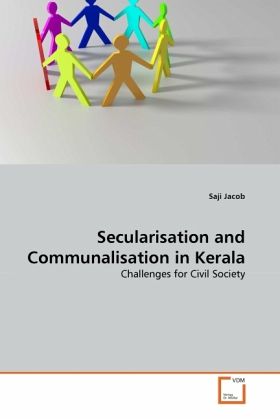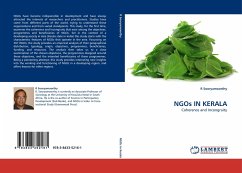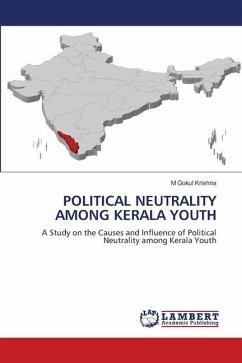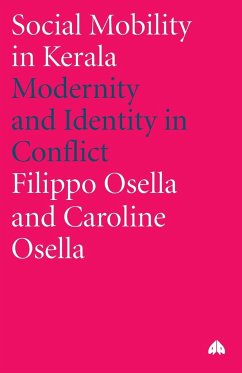
Secularisation and Communalisation in Kerala
Challenges for Civil Society
Versandkostenfrei!
Versandfertig in 6-10 Tagen
52,99 €
inkl. MwSt.

PAYBACK Punkte
26 °P sammeln!
Perhaps no other State in the Indian sub-continent presents such curious mix of contradictions as does the southern State of Kerala. It has witnessed several progressive and people-oriented movements which contributed to important social and economic changes. In the midst of such distinctions, very little attention is being paid to the various negative trends that have set in the state's social and political arenas. Increasing communalization of politics in Kerala is one such factor often overlooked by socio-political analysts. Analyzing the contours of the policy formulations in modern Kerala...
Perhaps no other State in the Indian sub-continent presents such curious mix of contradictions as does the southern State of Kerala. It has witnessed several progressive and people-oriented movements which contributed to important social and economic changes. In the midst of such distinctions, very little attention is being paid to the various negative trends that have set in the state's social and political arenas. Increasing communalization of politics in Kerala is one such factor often overlooked by socio-political analysts. Analyzing the contours of the policy formulations in modern Kerala, the present study makes an attempt to validate this notion historically. The study argues that the intensification of communalism in Kerala is primarily due to the failures of the Secular State' in establishing civil-social defenses against communalization. The argument is set against the idea that, since the notion of secularism was adopted in India as among the basic features of the Indian State, it was incumbent upon the States to have established appropriate defenses against the prospect of communalization.












